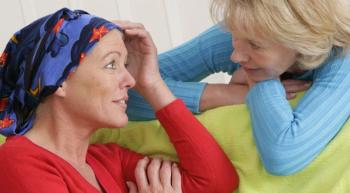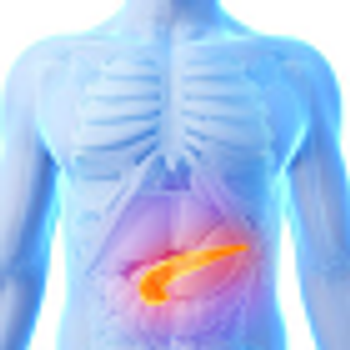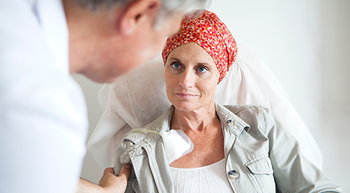
A study recently found that patients treated for breast cancer may experience decisional regret about their fertility choices.

A study recently found that patients treated for breast cancer may experience decisional regret about their fertility choices.

A recent study found that older patients with cancer had a greater risk of frailty, osteoporosis, and vitamin D insufficiency.

Survivors of endometrial cancer are at higher risk for long-term cardiovascular problems such as phlebitis, thrombophlebitis, pulmonary heart disease, hypotension and atrial fibrillation.

A recent study found that telenutrition services may be beneficial for patients with high-risk cancer.

Group exercise programs are beneficial to survivors of cancer, and can offer motivation from peers to continue living a healthy lifestyle.

Caregivers of cancer survivors have unique and specific needs as their loved ones with cancer enter into survivorship care.

Deborah K. Mayer discusses the future of survivorship care for patients with cancer.

At the 2017 Cancer Survivorship Symposium, findings from a study were shared which suggested patients with lung cancer do not receive supportive and survivorship care.

Despite recommendations to do so, distribution of survivorship care plans still has not increased for survivors of cancer, according to a recent study.

Online, self-care, coping skills curriculum "Reimagine" helped relieve depression and fatigue in breast cancer survivors.

Despite peripheral neuropathy associated with brentuximab vedotin in patients with lymphoma, patients believe the better outcomes are worth the risk of neuropathy.

A recent study examined factors associated with decreased levels of physical activity following cancer diagnosis and aimed to identify barriers to staying physically active.

Results of a recent study show that patients diagnosed with thyroid cancer before the age of 40 or more likely to be at an increased risk of late effects such as hypertension, heart disease and osteoporosis.

For partners of younger patients with breast cancer, coping strategies can affect their anxiety even after treatment.

Coping with the aftermath of cancer and cancer treatment can be especially difficult for survivors of head and neck cancer, according to Ann Marie Flores, PT, PhD, CLT.

Researchers at the Dana-Farber Cancer Institute are testing a psychoeducational intervention that they hope will offer relief for sexual problems after treatment.

As the number of older cancer survivors continues to grow, health researchers are looking for ways to combine healthy aging with healthy survivorship. It turns out that a relatively simple solution may be found in a survivor’s own backyard.

Short-term group acupuncture is valuable and cost-effective for patients with breast cancer, though it may not be the first form of therapy that comes to mind when trying to manage cancer pain.

While it is known that overweight and obese survivors of breast cancer experience poorer outcomes, gaps remain with regard to risk perception and communication between survivors and health care providers.

Previous studies have linked radiation to the pancreas during childhood to an increased risk of type 1 or 2 diabetes, and in a recent small study, researchers investigated the mechanisms leading to abnormal glucose and insulin dynamics in survivors of childhood cancers.

At the inaugural 2016 Cancer Survivorship Symposium in San Francisco, Smita Bhatia delivered a lecture titled

Mounting research continues to show increased risk of cancer recurrence and death in obese individuals, but findings of a new study highlight the benefits of weight-loss interventions for overweight and obese cancer survivors.

While patients and survivors often complain of chemobrain during and after their cancer treatment, it turns out that there are multiple factors behind the cognitive decline many survivors experience.

For cancer survivors, the fear of missing an early sign of recurrence or a second cancer is an everyday reality, making follow-up monitoring

New research shows that survivors of testicular cancer may have an increased burden of morbidity after being treated with cisplatin-based chemotherapy, with obesity, neuropathies, and tinnitus and hearing loss among the most prevalent late effects.

Despite national evidence- and consensus-based guidelines on posttreatment care, less than half of adolescents and young adults (AYAs) with Hodgkin lymphoma receive all of the recommended services within the first year after treatment, according to results of a pilot study being presented at the 2016 Cancer Survivorship Symposium.

Nearly half of all women report symptoms of chemotherapy-induced peripheral neuropathy (CIPN) long after their cancer treatment has ended, and those with the condition have a significantly higher risk of falls, altered walking patterns, and other difficulties in physical functioning, a new study has found.

New research has found that low-income breast cancer survivors are more likely to adhere to recommended survivorship care if they receive counseling along with a treatment summary and survivorship care plan (TSSP).